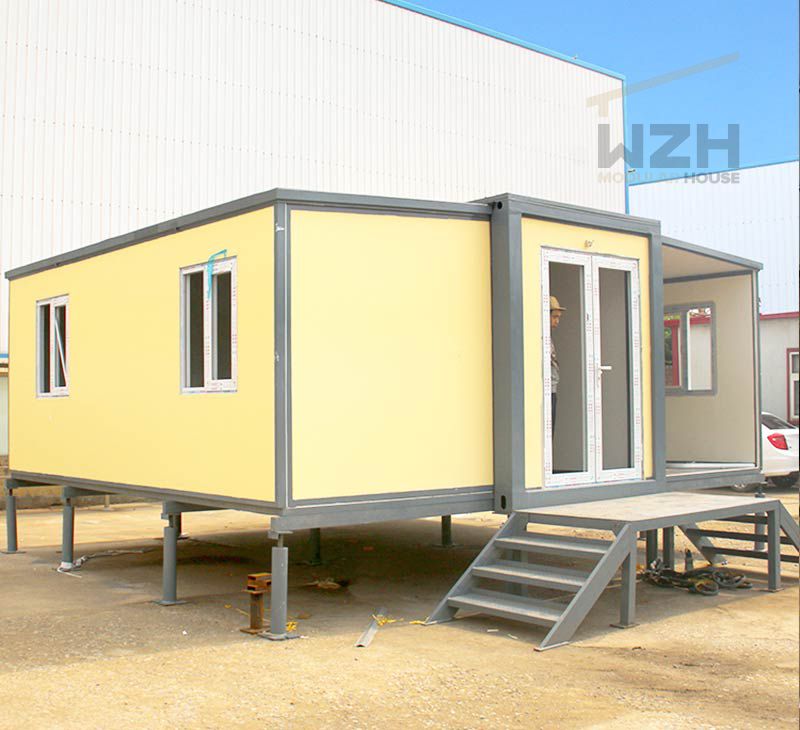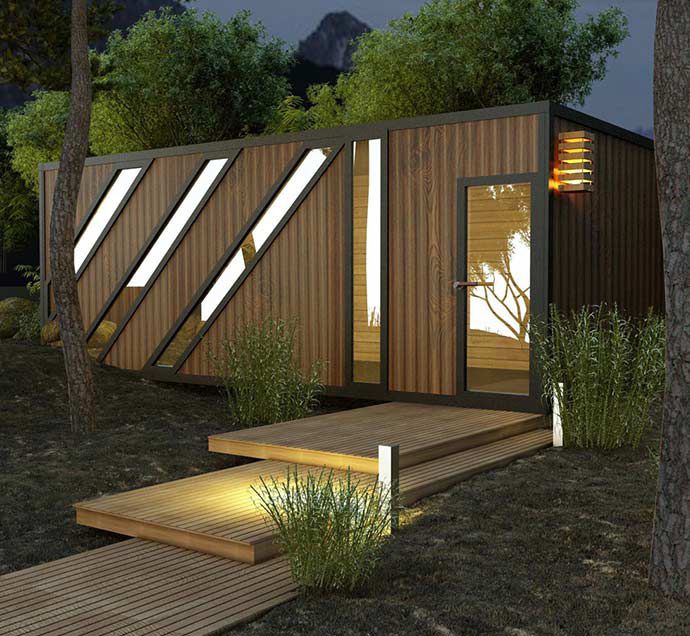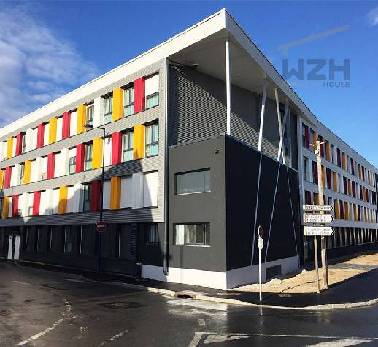
You bought a good container and want to transform it into a cozy house. How to insulate it, how to protect it from rain, how to prevent rust, are all issues to consider. Here modified container house manufacturer tell you some remodeling ideas.
Containers are very limited in size and are quickly consumed by plumbing, HVAC, insulation and other systems. A container is designed to fit on a train, which means it is narrow and normal furniture does not fit. A standard module container home is also only 8 feet wide and 8 feet 6 feet high, which doesn't leave much headroom after installing insulation and wiring.
The narrow shape of a shipping container home does not isolate the exterior well. To avoid taking up interior space, relatively thin insulation with a high R-value per inch, such as spray polyurethane foam, is often used. While spray foam is an effective and airtight insulator, the blowing agents used in many brands of spray foam are powerful greenhouse gases.
While the container home is reinforced at the corners, the existing roof may lack structural integrity. Those looking for a container home that can support weight (such as weather) should consider whether building a roof is right for them. Roofs can also provide the aesthetic and architectural style common to North American homes. While there are several types of roofs available for container homes, flat roofs, pitched roofs, roof decks and living roofs are the most common.
The easiest, fastest and least expensive to build, but can be more costly to maintain. Creating a slight slope for rainwater drainage is essential.
Also known as green roofs, they are roofs that introduce plants and greenery. These roof types are both aesthetically pleasing and natural, and provide natural insulation and cooling.
Are roofs that slope downward and are one of the most common roof types in areas of heavy rain and snow. Popular examples of pitched roofs are hip walls, hips, and pitched lines.
are creative flat spaces built on top of a roof to expand the occupiable or usable space. Many rooftop terraces are used for small outdoor gardens, dining or lounge areas.

Because container homes are made of metal, they can rust. Some containers were originally manufactured from alloys, a process often referred to as weathering steel or weatherproof steel, which helps to create a surface layer of rust to mitigate further corrosion. The climate in which the container is located can affect whether the container house will rust, as wet and dry climates affect containers differently.
It is important to inspect your container home and look for rust spots. Any problem areas should be treated and repaired to reduce the chance of rust spreading.
The cost of container home differs. Well-maintained container homes retain their resale value just like traditional homes. They are relatively easy to resell because they can be loaded onto a truck and shipped almost anywhere. Before you buy, you may want to ask if a container home is suitable for your climate, and if not, ask about modifications you may need to make to make it suitable for its intended location.
WZH provides different kinds and sizes of container houses, please feel free to contact us.
 Container House-is Quietly Changing Your Future Life!
The container house is listed as the 19th invention. US Business Weekly reported: "Using containers to rebuild houses, this invention can solve the housing problems of hundreds of millions of poor families. At present, a container house with a usable area
Container House-is Quietly Changing Your Future Life!
The container house is listed as the 19th invention. US Business Weekly reported: "Using containers to rebuild houses, this invention can solve the housing problems of hundreds of millions of poor families. At present, a container house with a usable area
Oct. 15

WEIZHENGHENG Modular House Technology CO.,LTD provides various configurations of Flat Pack container houses. It can meet the needs of home living.
Copyright © Hebei Weizhengheng Modular House Technology Co., Ltd. All Rights Reserved |Sitemap